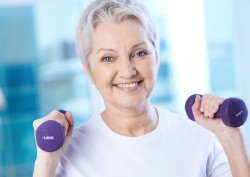 Below are some guidelines for those NOT using insulin as treatment.
Below are some guidelines for those NOT using insulin as treatment.
Benefits of exercise
You’ll benefit from exercise in a number of ways. It’ll lower your blood glucose, your treatment will work more effectively and you may lose some weight. Exercise will strengthen your muscles and joints. Exercise also lowers your blood pressure and can help with cholesterol management, both of which are good for your heart. Finally, being in good shape will increase your self-confidence and help you feel good about yourself.
Before exercising consider
It is important that you choose the kind and amount of exercise that is right for you and that you will enjoy. Before you begin an exercise programme, you should consider your general health, your current physical fitness and how well your diabetes is controlled. Discuss your choice of exercise with your diabetes care team. If you have complications from diabetes or other health problems, there may be some sports that are more suitable for you than others.
Physical activities
If your diabetes is well controlled, you should be able to participate in the same kind of physical activities as people without diabetes, but remember that these activities can lower your blood glucose. Although this may sound good, given that type 2 diabetes is characterised by high blood glucose, it is possible for your blood glucose to go too low if you are taking certain kinds of diabetes medicines. Your doctor will advise you if this is a possibility with your treatment. The extent to which your blood glucose is affected will also depend on the duration and intensity of the exercise. It differs from person to person. Try to learn how your body responds to different kinds of physical activities.
Precautions after exercise
It’s a good idea to test your blood sugar after exercise. If it is normal or low, you should eat some more carbohydrates. Be aware that hypoglycaemia can develop several hours after a hard exercise session if you are taking some kinds of diabetes medicine. If you are taking such treatments and you exercise late in the day, you should be particularly aware of hypoglycaemia during the night and eat an extra large carbohydrate based snack at bedtime. You may also need to eat extra foods rich in carbohydrate, such as pasta, the following day.
For practical tips on exercise please checkout our Getting Active for Better Health booklet.

